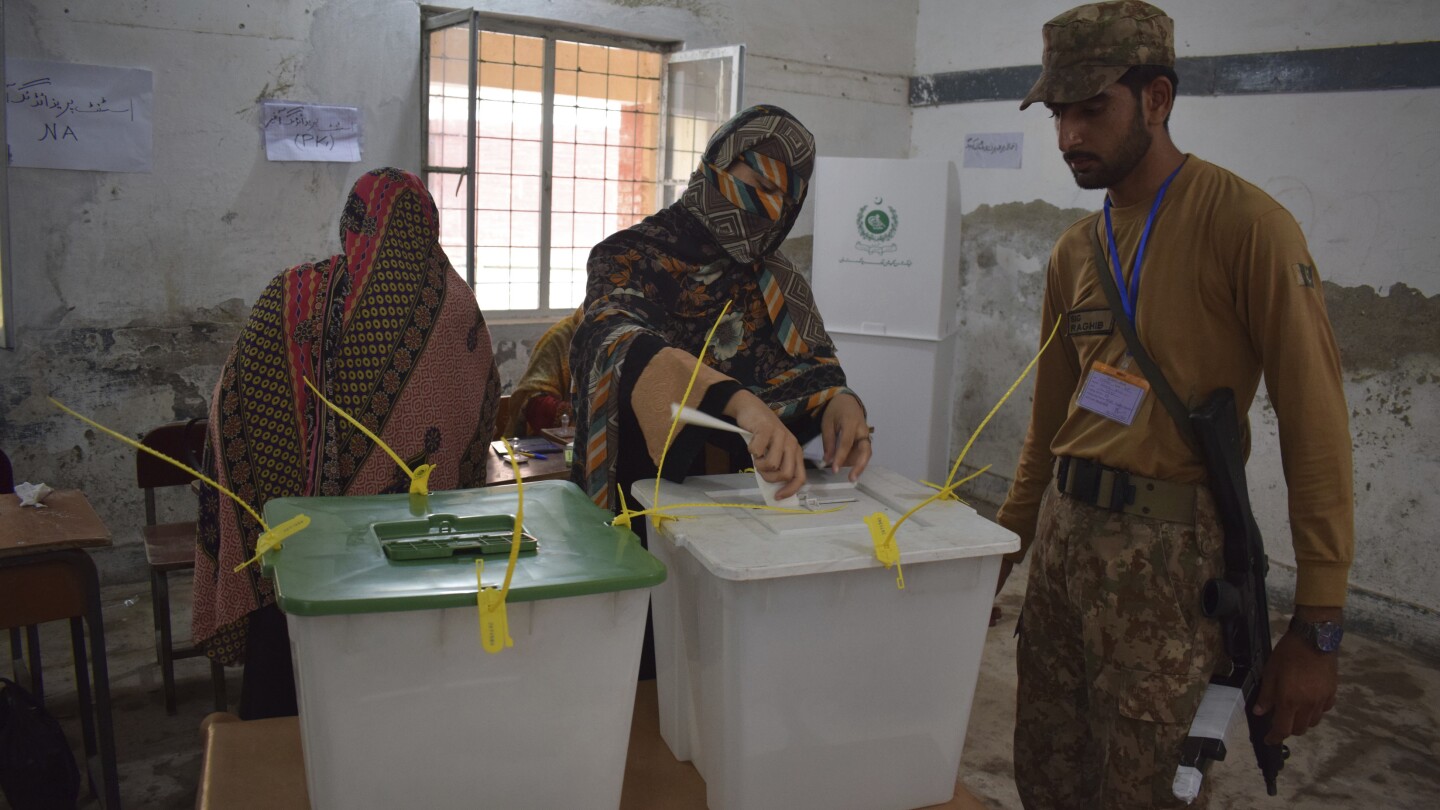ISLAMABAD (AP) — A list of some key events over the last few years leading up to Pakistan’s parliamentary election on Thursday:
July 25, 2018 — Pakistanis vote for a new government in an election marred by violence and allegations of fraud.
July 26, 2018 — Former cricket star Imran Khan wins the polls but has to seek out allies to form a coalition. A few weeks later, lawmakers elect him as the country’s prime minister.
Feb. 26, 2019 — Tensions escalate sharply in the region after India launched an airstrike inside Pakistan that New Delhi said targeted a terrorist training camp. Pakistan shot down two Indian warplanes and captured a pilot in retaliation.
Aug. 15, 2021 — The Taliban seize power of Afghanistan during the final weeks of the U.S. and NATO troop withdrawal from the country after a costly two-decade war. Afghans, fearing for the future, race to the airport, one of the last routes out of Afghanistan, and also to the border crossings into Pakistan.
April 9, 2022 — Pakistan’s political opposition topples Imran Khan in a no-confidence vote in parliament. The opposition forms a new government, with Shehbaz Sharif, a brother of the disgraced former Prime Minister Nawaz Sharif, sworn in days later.
July 5, 2022 — Heavy rains lash Pakistan for weeks on end, destroying homes, schools and other buildings and infrastructure. The summer becomes a time of unprecedented deluges and flash flooding that kill more than 1,700 people and cause billions of dollars in damage.
Nov. 3, 2022 — Imran Khan is wounded in a shooting at a rally in the eastern city of Lahore, an attack his party calls an assassination attempt. One of Khan’s supporters is killed and nine people were hurt. The gunman was immediately arrested, and police later said he had acted alone.
Nov. 28, 2022 — The Pakistani Taliban break off a cease-fire with the government, and their fighters resume attacks across the country, mainly targeting the country’s security forces.
Nov. 29, 2022 — The new army chief and former spymaster Gen. Asim Munir takes charge of the military, replacing Gen. Qamar Javed Bajwa, who retired from the post after a six-year term.
Jan. 30, 2023 — A suicide bomber disguised in a police uniform kills at least 100 people at a mosque inside a high-security government and police compound in the northwestern city of Peshawar.
May 9, 2023 — Imran Khan is arrested and dragged from court where he arrived to face charges in multiple graft cases. His detention sparks days of violent demonstrations by angry supporters.
July 12, 2023 — The International Monetary Fund approves a much-awaited $3 billion bailout deal, a move that saves Pakistan from defaulting on its debt repayments.
Aug. 5, 2023 — Imran Khan is sentenced to three years in prison after a court convicted him of corruption, the first sentence in more than 150 legal cases against him. He is moved to the high-security Attock Prison, in eastern Punjab province, notorious for harsh conditions.
Aug. 9, 2023 — Pakistan’s president dissolves the National Assembly, or lower house of parliament, a first step in the countdown to the upcoming general election.
Sept. 26, 2023 — Imran Khan is moved from Attock Prison to Adiala Prison in the garrison city of Rawalpindi, near Islamabad.
Oct. 4, 2023 — Pakistan announces a major crackdown on foreigners living in the country illegally, including around 1.7 million Afghans. The policy angers Afghanistan’s Taliban-led government and draws widespread condemnation from aid agencies, rights groups, and the United Nations.
Oct. 21, 2023 — Three-time Prime Minister Nawaz Sharif returns to Pakistan after four years in self-imposed exile abroad to avoid serving prison sentences on corruption charges. His conviction and sentences are overturned on appeal after his return.
Nov. 2, 2023 — Pakistan’s election oversight body postpones parliamentary elections for a second time, saying the vote, originally expected in November and then scheduled for the last week of January, would instead take place on Feb. 8.
Jan. 8, 2024 — The Supreme Court scraps a lifetime ban on politicians with criminal convictions from contesting elections, clearing the way for Nawaz Sharif to seek a fourth term in office. The ruling says convicted politicians would be barred from running only for five years.
Jan. 16 — Iran launches airstrikes in Pakistan targeting what it described as bases for a Sunni militant group. Pakistan calls the attack an “unprovoked violation” of its airspace and retaliates two days later in a significant escalation in fraught relations between the neighbors.
Jan. 30 — Imran Khan is sentenced to 10 years in prison after being found guilty of leaking state secrets by waving a confidential document during a political rally after his ouster.
Jan. 31 — Khan and his wife, Bushra Bibi, are sentenced to 14-year terms for corruption on charges of retaining and selling state gifts in violation of government rules when he was in power.
Feb. 3 — Khan and his wife are sentenced to seven years on charges they violated the country’s marriage law when they wed in 2018. It’s the fourth sentence so far for Khan and the second for his wife.

